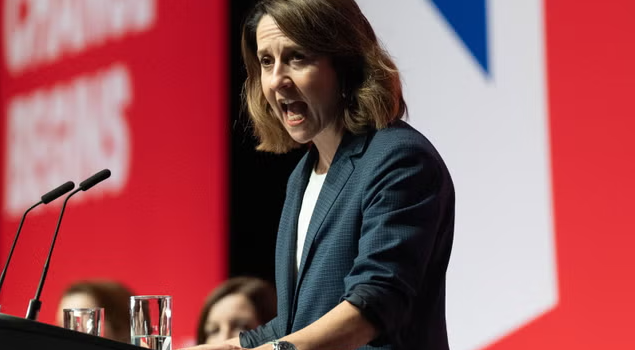
Government Ends Universal Scheme, Fueling Concerns Over Pensioner Deaths
The Government’s decision to cut the winter fuel payments for pensioners has sparked outrage among MPs, with some warning that the move will “add insult to injury” for the most vulnerable. The previous universal scheme, which provided financial assistance to all pensioners, has now been replaced with a means-tested system. Under the new policy, only pensioners receiving certain benefits, such as Pension Credit and Universal Credit, will be eligible for winter fuel payments of up to £300.
Liberal Democrat work and pensions spokesperson Steve Darling described the change as a “regressive approach” that would disproportionately affect the elderly, particularly those over the age of 80. He questioned Work and Pensions Secretary Liz Kendall about the impact on pensioners who would no longer receive the payment, especially as many are among the most vulnerable members of society.
Darling told the House of Commons: “There are 2.7 million pensioners over the age of 80 who would have benefited from the £300 winter fuel allowance. These are the most vulnerable in our society, and while the previous government let them down, let us not allow the new Government to do the same.”
In response, Kendall expressed regret over the decision but stressed the need to address the £22 billion deficit left by previous administrations. She assured MPs that the government would continue to prioritise the poorest pensioners in its approach, despite the changes. However, she did not commit to reversing the decision.
Conservative shadow work and pensions secretary Mel Stride pointed to a 2017 analysis produced by the Labour Party, which suggested that up to 4,000 pensioners could die prematurely as a result of the proposed cuts to winter fuel payments. Stride pressed Kendall on whether she stood by this figure, asking how many pensioner deaths she expected as a result of the policy.
Kendall responded by deflecting the question, accusing Stride’s party of failing to address the pensioner poverty crisis during their time in office. She also mentioned that the government was focused on fixing the financial challenges left by previous administrations, including tackling the £22 billion public finance shortfall.
The policy change has prompted strong reactions from across the political spectrum, with critics highlighting the harsh consequences for elderly people who are already struggling financially. A recent impact assessment by the Department for Work and Pensions (DWP) found that 83% of pensioners aged 80 and over would be excluded from receiving the winter fuel payment under the new system.
Kendall defended the move, saying that the Government had published an equality analysis and that it would remain “open and transparent” about the policy’s impact. However, with winter approaching, many MPs are concerned that the reduction in support will put vulnerable pensioners at further risk, with some fearing that the cuts could contribute to more premature deaths.
The ongoing debate is set to continue, with MPs from both major parties calling for further action to protect pensioners during the cost-of-living crisis.









